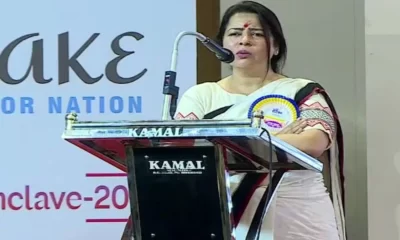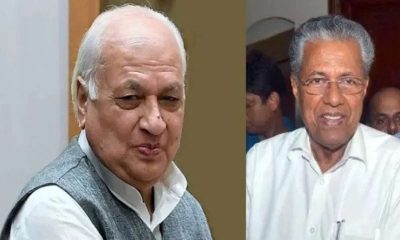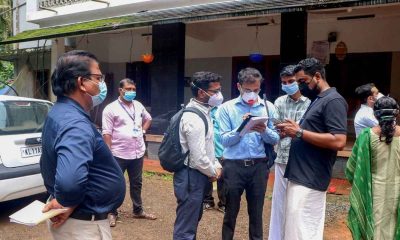India News
NEET 2022: Students forced to remove inner wear to sit for exam in Kerala’s Kollam district
The incident happened in Kerala’s Kollam district at the Mar Thoma Institute of Information Technology, Ayur.

A horrific incident occurred on Sunday when the students who appeared for the National Eligibility-cum-Entrance Test or NEET exam were harassed over their clothing. According to the reports, the girls and women who appeared for the NEET exam were asked to remove their bras in order to write the exam. The incident happened in Kerala’s Kollam district at the Mar Thoma Institute of Information Technology, Ayur.
The FIR has been lodged by a 17-year-old girl’s father where he stated that his daughter who was sitting for her first ever NEET exam was asked to remove her innerwear to be allowed to write in over a three-hour long exam.
The father filed a complaint to the Kottarakkara Deputy Superintendent of Police’s office. Police have registered a case under IPC sections 354 (Assault or criminal force to woman with intent to outrage her modesty) and 509 (Word, gesture or act intended to insult the modesty of a woman).
National Testing Agency (NTA) on the Kollam incident stated that there was no complaint to anyone during or immediately after the examination. As far as NTA’s Dress Code for NEET is concerned it does not permit any such activity alleged by the parent of the candidate.
Centre Superintendent & Independent Observer as well as City Coordinator, Kollam district have stated that they did not find any such incident happening in the NEET examination center. The candidate did take the exam, said NTA.
Read Also: Man’s Shaktiman stunt atop moving truck ends disastrously in Gomtinagar, tweeple say become budhiman
What is the whole incident?
The complainant identified as Gopakumar Sooranad stated the whole scene where he said that after his daughter had entered the exam center, he and his wife were about to have lunch when they received a call from information technology asking them to report to the gate.
He said that when they reached the gate, they saw their daughter crying. She narrated the whole incident to her parents that she and the other girls are asked to remove their bras to sit for the exam. He further said that she called them to ask for the shawl to wear during the exam.
Sooranad stated that the incident has affected his daughter’s mental peace. He added that when she returned from the exam hall, she looked distressed and broke into tears in his wife’s arms.
In contravention of COVID-19 guidelines, young women’s and girls’ undergarments were neatly stacked in two different rooms, he said. The anguished father said students who appeared for the exams were between 17 and 23. “Think about how difficult it would be for them to focus throughout the exam if they were also surrounded by male students,” he said angrily.
Sooranad stated that he was willing to file a complaint with the Human Rights Commission because he thinks the incident violated human rights and that something like shouldn’t ever occur in the nation.
Delhi: Sikkim Police personnel shoots dead three colleagues in Haiderpur, arrested
Supreme Court asks UP Police not to take any action against Mohammad Zubair till July 20
India News
AAP leader Saurabh Bharadwaj says a conspiracy is underway for slow death of Arvind Kejriwal
Saurabh Bharadwaj also slammed the Tihar administration, BJP, Centre and Delhi LG and held them responsible for denying insulin to Kejriwal and said the Delhi Chief Minister has been suffering from Type-2 diabetes for the last 20-22 years.
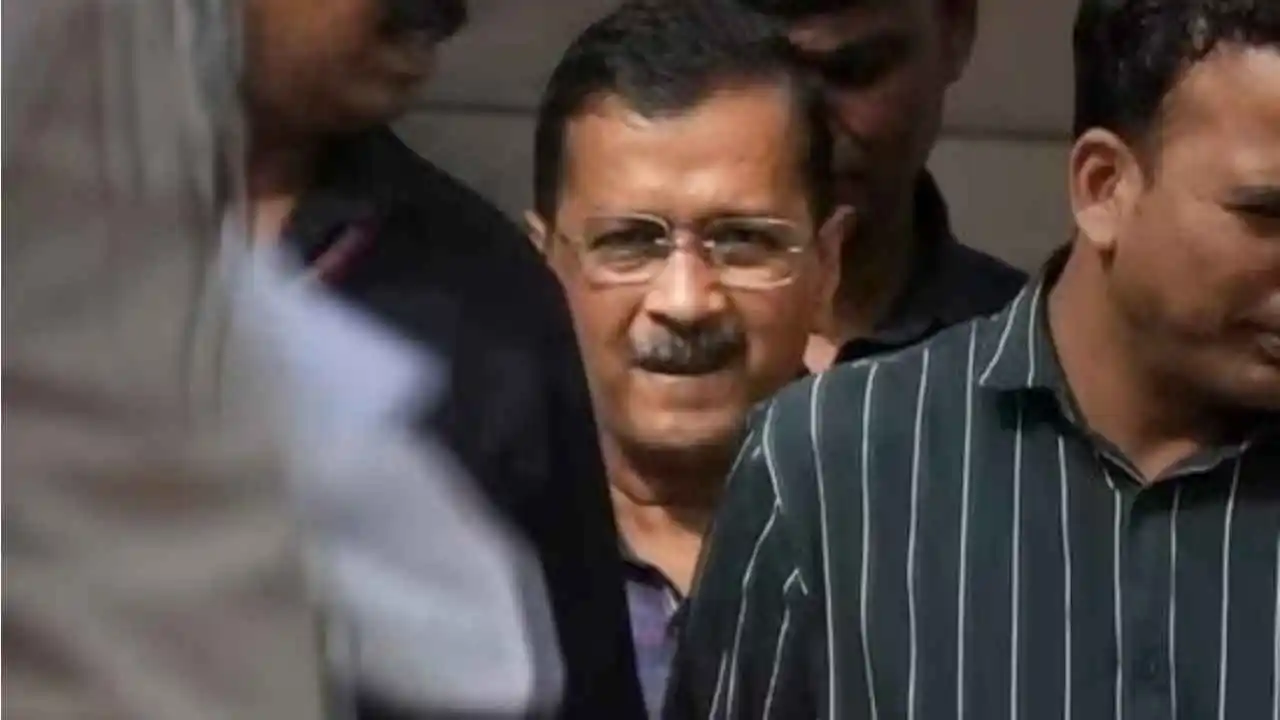
The Aam Aadmi Party on Saturday said that Delhi Chief Minister Arvind Kejriwal is being pushed towards a slow death inside Tihar jail as he is being denied insulin and consultations with his doctor. AAP spokesperson Saurabh Bharadwaj told the media that Arvind Kejriwal, who is suffering from Type-2 diabetes, has been asking for insulin and a video conferencing with his family doctor as the jail administration is not allowing him to do so.
Bharadwaj said he wants to say with full responsibility that a conspiracy is underway for the slow death of Kejriwal. He said his claims were on the basis of blood sugar readings of the Delhi Chief Minister in jail. He also slammed the Tihar administration, BJP, Centre and Delhi LG and held them responsible for denying insulin to Kejriwal and said the Delhi Chief Minister has been suffering from Type-2 diabetes for the last 20-22 years.
On Friday, the Delhi chief minister’s council Senior advocate Abhishek Manu Singhvi said Kejriwal has not been administered insulin to control his sugar levels since his arrest, and termed it alarming and shocking. The Enforcement Directorate had on Thursday claimed before the court that Kejriwal has been taking high sugar intake by consuming foods like mangoes and sweets every day, inspite of the fact that he was suffering from Type-2 diabetes, to create grounds for medical bail.
Kejriwal refuted the claims of the Enforcement Directorate by asserting before a court that the food he consumed was in accordance with the diet chart prepared by his doctor. Arvind Kejriwal confirmed that he only uses sugar free in his tea.
Bharadwaj further added that overall, it was a conspiracy to give a slow death to Arvind Kejriwal so that his multiple organs get damaged and when he comes out of jail after 2-4 months he goes for the treatment of heart, kidney and other organs.
2024 Lok Sabha Elections
Rahul Gandhi says BJP will not get more than 150 seats in Lok Sabha elections
Congress leader Rahul Gandhi said these BJP people are saying that they will secure this many or that many seats and but he wanted to make it clear that BJP will not get more than 150 seats.

With completion of the first phase of the Lok Sabha elections yesterday, the stage is set for the 2nd phase of the Lok Sabha elections, which has lead the political parties to intensify and accelerate campaigning. Congress leader Rahul Gandhi too, with his eyes set on the 2nd phase was addressing a public rally at Bihar’s Bhagalpur on Saturday.
Addressing the rally, Congress leader Rahul Gandhi and said these BJP people are saying that they will secure this many or that many seats and but he wanted to make it clear that BJP will not get more than 150 seats.
Rahul Gandhi expressed his confidence that the I.N.D.I.A. Bloc will emerge victorious in the Lok Sabha elections. He also stressed on the party’s vision for INDIA once elected to power. Rahul Gandhi said, As soon as the INDIA alliance government comes, they will end the Agniveer scheme. He said India does not need two types of martyrs and added that everyone should get pension.
Gandhi further added that they will change GST and there will be one tax, minimum tax. He also talked about doubling the salary of Asha and Anganwadi workers. Gandhi said they are giving 2 guarantees to the farmers. The Congress party is going to waive off the farmers’ debts, and secondly, they are going to provide a guaranteed minimum support price to the farmers of India.
Congress leader even promised that his government would provide all diploma holders and graduates in India with the right to an apprenticeship. During the second phase of the Lok Sabha elections which are scheduled to be held on April 26, 4 constituencies in Bihar, including, Kishanganj, Bhagalpur, and Purnia ,Katihar will go for elections.
2024 Lok Sabha Elections
RJD leader Tejashwi Yadav says BJP’s 400 paar film has become a super flop on the first day itself
Tejashwi Yadav said the INDIA Bloc had held block wise meetings and the feedback that has come is very good that the BJP’s 400 paar film has flopped on day 1 of the Lok Sabha elections. He said the people of Bihar are aware and will teach BJP a lesson.

After the first phase of the Lok Sabha election got completed, Rashtriya Janata Dal (RJD) leader Tejashwi Yadav on Saturday took a dig at the Bharatiya Janata Party and said that the BJP’s 400 paar film has become a super flop on the first day itself. The RJD leader told that the media that there is no competition in the first phase of the elections as Bihar will give shocking results this time.
Yadav added that the Mahagathbandhan is winning all 4 seats in the first phase. He said the INDIA Bloc had held block wise meetings and the feedback that has come is very good that the BJP’s 400 paar film has flopped on day 1 of the Lok Sabha elections. He said the people of Bihar are aware and will teach BJP a lesson.
Tejashwi Yadav said there is no competition in the first phase. He said the people of Bihar will give shocking results this time. He added the BJP government has not done anything for the people of Bihar. He said the promises made by Modi ji in 2014 and 2019 were not fulfilled. Yadav added the public is tired of BJP’s statements and false promises. He said the opposition has promised that they will give a special package to Bihar along with special status.
Tejashwi Yadav said today the rally is with Rahul Gandhi ji in Bhagalpur. The entire INDIA Bloc and the Mahagathbandhan are working together. The RJD leader pointed out that unemployment is the biggest issue in Bihar. He said other important issues being faced by the people of Bihar are poverty, inflation, investment in the state. He said Migration and floods are also issues which need to be looked at. He added the people of BJP are very worried. He said the people of BJP say that they will abolish the Constitution. He said those who destroy the Constitution will themselves be destroyed.
-
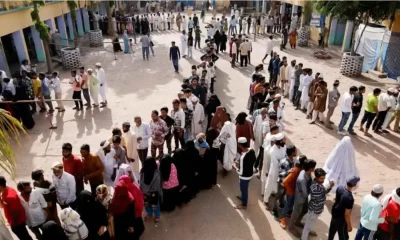
 2024 Lok Sabha Elections24 hours ago
2024 Lok Sabha Elections24 hours agoLok Sabha Elections: Voter turnout 62.02% in Tamil Nadu till 5pm
-

 Cricket news8 hours ago
Cricket news8 hours agoIPL 2024: Lucknow Super Giants beat Chennai Super Kings by 8 wickets
-
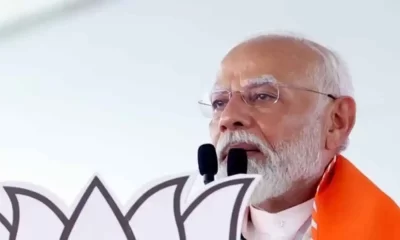
 2024 Lok Sabha Elections6 hours ago
2024 Lok Sabha Elections6 hours agoPrime Minister Narendra Modi takes dig at Rahul Gandhi, says like Amethi, Congress will lose its ground from Wayanad also
-
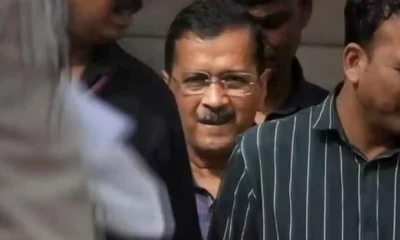
 India News3 hours ago
India News3 hours agoAAP leader Saurabh Bharadwaj says a conspiracy is underway for slow death of Arvind Kejriwal
-

 2024 Lok Sabha Elections6 hours ago
2024 Lok Sabha Elections6 hours agoRJD leader Tejashwi Yadav says BJP’s 400 paar film has become a super flop on the first day itself
-

 2024 Lok Sabha Elections4 hours ago
2024 Lok Sabha Elections4 hours agoRahul Gandhi says BJP will not get more than 150 seats in Lok Sabha elections
-

 Entertainment1 hour ago
Entertainment1 hour agoBollywood star Ajay Devgn shares emotional birthday post on his daughter Nysa Devgan’s 21st birthday

